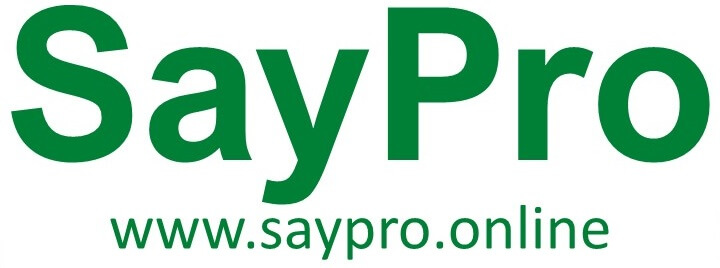Your basket is currently empty!
Logistics Delegate – Jordan (Middle East Crisis)
Organizational Context The International Federation of Red Cross and Red Crescent Societies (IFRC) is the world’s largest humanitarian organization, with a network of 191-member National Societies (NSs). The overall aim of IFRC is “to inspire, encourage, facilitate, and promote at all times all forms of humanitarian activities by NSs with a view to preventing and alleviating human suffering and thereby contributing to the maintenance and promotion of human dignity and peace in the world.” IFRC works to meet the needs and improve the lives of vulnerable people before, during and after disasters, health emergencies and other crises. IFRC is part of the International Red Cross and Red Crescent Movement (Movement), together with its member National Societies and the International Committee of the Red Cross (ICRC). The work of IFRC is guided by the following fundamental principles: humanity, impartiality, neutrality, independence, voluntary service, unity, and universality. IFRC is led by its Secretary General, and has its Headquarters in Geneva, Switzerland. The Headquarters are organized into three main Divisions: (i) National Society Development and Operations Coordination; (ii) Global Relations, Humanitarian Diplomacy and Digitalization; and (iii) Management Policy, Strategy and Corporate Services. IFRC has five regional offices in Africa, Asia Pacific, Middle East and North Africa, Europe, and the Americas. IFRC also has country cluster delegations and country delegations throughout the world. Together, the Geneva Headquarters and the field structure (regional, cluster and country) comprise the IFRC Secretariat. IFRC has a zero-tolerance policy on conduct that is incompatible with the aims and objectives of the Red Cross and Red Crescent Movement, including sexual exploitation and abuse, sexual harassment and other forms of harassment, abuse of authority, discrimination, and lack of integrity (including but not limited to financial misconduct). IFRC also adheres to strict child safeguarding principles. Job Purpose The Logistics Delegate will provide comprehensive logistics support to the IFRC and Jordan Red Crescent Society (JNRCS) for the Middle East Crisis operation in Jordan. The primary focus will be on managing the flow of incoming and outgoing shipments, ensuring timely customs clearance, and maintaining efficient supply chain processes. The delegate will be responsible for logistics documentation, cargo tracking, and ensuring proper coordination between internal and external stakeholders. While the Logistics Delegate will focus on shipment management, they will also be required to handle specific warehousing tasks if no dedicated warehouse delegate is available, ensuring that stock control and storage operations are maintained to IFRC standards. The Logistics Delegate is expected to be operational and lead by example, demonstrating professionalism, integrity, and accountability in all logistics operations. They will take ownership of challenges, proactively seek solutions, and ensure that logistics tasks are carried out with efficiency and diligence. By setting a high standard of performance, the delegate will encourage a collaborative and results-oriented working environment within the logistics team and JNRCS Job Duties and Responsibilities 1. Logistics Documentation and Compliance • Ensure the accurate and timely preparation of all logistics documentation, including customs clearance forms, shipping manifests, and inventory records. • Maintain an audit trail for all logistics documents to ensure transparency and accountability within the operation. • Ensure that all logistics processes comply with IFRC standards and local regulations. 2. Shipment and Cargo Management • Oversee the receiving, clearing, and forwarding of all Red Cross Red Crescent cargo, ensuring that shipments are handled efficiently and in line with IFRC protocols. • Take charge of monitoring, tracking, and reporting on all incoming and outgoing shipments, ensuring that goods are delivered to their final destinations without unnecessary delays. • Manage and facilitate customs clearance procedures, ensuring timely processing of shipments while adhering to local customs laws and regulations. • Communicate shipment statuses regularly to key stakeholders, addressing any potential issues such as delays or transportation challenges. 3. Monitoring and Reporting of Shipments • Continuously monitor the flow of shipments in and out of Jordan, ensuring that all cargo is accounted for, whether it is incoming, outgoing, or in transit. • Provide weekly updates on shipment statuses, including any challenges faced in customs clearance or transport, along with solutions or recommendations to address bottlenecks. • Track and report on the progress of Gaza-bound shipments, ensuring that these critical shipments are handled with priority. 4. Limited Warehousing Responsibilities • While the focus is on shipment management, the Logistics Delegate will assume limited responsibility for warehousing tasks if a dedicated warehouse delegate is unavailable. • In the absence of a warehouse delegate, ensure that key warehousing functions, such as stock control, inventory management, and proper storage of goods, are carried out according to IFRC standards. • Monitor stock levels and ensure timely updates on warehouse operations, particularly for shipments in transit or awaiting dispatch. 5. Coordination with Internal Stakeholders • Build strong working relationships with JNRCS and IFRC staff, acting as the central logistics point of contact within the team. • Ensure smooth coordination between JNRCS, IFRC, and other relevant departments, facilitating the clear flow of information related to logistics and shipment operations. • Communicate logistics progress and any challenges to internal stakeholders in a timely and effective manner, ensuring that any issues related to shipments or customs clearance are addressed collaboratively. 6. Supply Chain Strategy and SOP Implementation • Collaborate with JNRCS to develop and implement a supply chain strategy that ensures the efficient movement of goods in and out of Jordan, while adhering to IFRC standards. • Create and enforce Standard Operating Procedures (SOPs) that improve the logistics processes, ensuring consistency and efficiency in the management of shipments and cargo. 7. Capacity Building for JNRCS Logistics Personnel • Provide training, mentoring, and capacity-building support to JNRCS logistics staff, focusing on customs clearance, shipment management, and logistics documentation. • Ensure that JNRCS staff are fully trained to manage logistics processes independently, with a focus on building sustainable logistics capabilities for future operations. Job Duties and Responsibilities (continued) Key Deliverables1. Logistics Documentation and Compliance: o Ensure timely and accurate preparation of all logistics documents, including customs clearance, shipping manifests, and inventory records, in compliance with IFRC standards. o Maintain a clear audit trail of all logistics paperwork to facilitate transparency and accountability. 2. Shipment Management and Cargo Flow: o Monitor, track, and report on all incoming and outgoing shipments, ensuring efficient coordination for the timely movement of Red Cross Red Crescent cargo. o Handle customs clearance processes for all shipments, ensuring compliance with local regulations and avoiding unnecessary delays. o If required, liaise with transport and logistics providers to ensure smooth and efficient movement of goods to their final destinations, particularly for Gaza-bound shipments. 3. Coordination and Stakeholder Communication: o Maintain effective communication with JNRCS, IFRC, and relevant partners to ensure that logistics activities align with the operation’s objectives. o Ensure that all logistics activities are clearly communicated to stakeholders, and that any delays or challenges are escalated in a timely manner. 4. Monitoring and Reporting of Shipments: o Monitor and provide regular updates on the status of all shipments, including incoming, outgoing, and in-transit cargo, highlighting any issues such as delays or customs-related obstacles. o Provide weekly reports that cover: Shipment statuses (incoming/outgoing) Progress on customs clearance and transportation Any challenges faced in logistics operations, and potential solutions. 5. Limited Warehousing Responsibility: o While a dedicated warehouse delegate is preferred, in their absence, the Logistics Delegate will oversee key warehousing tasks, including managing stock levels, ensuring goods are stored correctly, and maintaining accurate inventory records. o Ensure the safe and efficient handling of goods in storage and coordinate the smooth transition of cargo through the warehouse if needed. 6. Supply Chain Strategy and SOP Development: o Collaborate with JNRCS to develop and implement a supply chain strategy and logistics SOPs, focusing on optimizing the flow of goods and reducing bottlenecks in the shipment process. o Ensure that logistics processes are streamlined and compliant with IFRC standards. 7. Capacity Building for JNRCS: o Deliver training and mentorship to JNRCS logistics staff, focusing on shipment tracking, customs clearance processes, and documentation, to build their capacity to manage logistics independently. o Provide guidance on maintaining efficiency and accountability throughout the supply chain. 8. End-of-Mission Handover and Debrief: o Provide a detailed handover document summarizing logistics operations, including shipment statuses, key challenges, and recommendations for future improvements. o Submit a comprehensive mission appraisal and debrief report, evaluating the effectiveness of logistics operations and identifying areas for enhancement. Duties applicable to all staff 1. Actively work towards the achievement of the IFRC Secretariat’s goals. 2. Abide by and work in accordance with the Red Cross and Red Crescent principles. 3. Perform any other work-related duties and responsibilities that may be assigned by the line manager. Education Professional qualification in logistics or equivalent experience – Required Basic Delegates Training Course, IMPACT or equivalent knowledge – Required Logistics ERU training – Preferred Relevant degree / logistics qualification – Required Experience Experience of working as part of a team and staff management – Required Minimum 3 years professional experience in Supply Chain – Required Assessment skills – Required Experience in managing and training staff/volunteers – Preferred Red Cross/Red Crescent knowledge and experience – Required Experience working for a humanitarian aid organisation – Preferred Experience of Logistics NS development – Preferred Knowledge, Skills and Languages Knowledge and Skills Self-supporting in computers (Windows, spreadsheets, word-processing) – Required Knowledge of communications systems (satellite phones, etc.) – Required Excellent communications skills including report writing – Required Project management skills – Preferred Ability to work in a cross-functional environment – Required Languages Fluent spoken and written English – Required Good command of another IFRC official language (French, Spanish or Arabic) – Preferred Competencies, Values and Comments Values: Respect for diversity; Integrity; Professionalism; Accountability Core competencies: Communication; Collaboration and teamwork; Judgement and decision making; National society and customer relations; Creativity and innovation; Building trust IFRC Disclaimer IFRC has a zero-tolerance policy on conduct that is incompatible with the aims and objectives of the Red Cross and Red Crescent Movement, including sexual exploitation and abuse, sexual harassment and other forms of harassment, abuse of authority, discrimination, and lack of integrity (including but not limited to financial misconduct). IFRC also adheres to strict child safeguarding principles. If you appointed to or undertake a role within IFRC, whether as staff, staff on loan or secondees, you will be subject to the organization’s Code of Conduct, which is available here and on our website. Note: All offers of employment will be subject to satisfactory references and appropriate screening checks, which include prior professional conduct checks and review of criminal records. IFRC will request a conduct check from all prior employers for a period of 5 years, including but not limited to employers who like IFRC participate in the Misconduct Disclosure Scheme. For more details on the Scheme, please see THE MISCONDUCT DISCLOSURE SCHEME — SCHR. IFRC ensures equal employment opportunities! How to apply For interested candidates, kindly apply through the following link: IFRC job detail | IFRC







